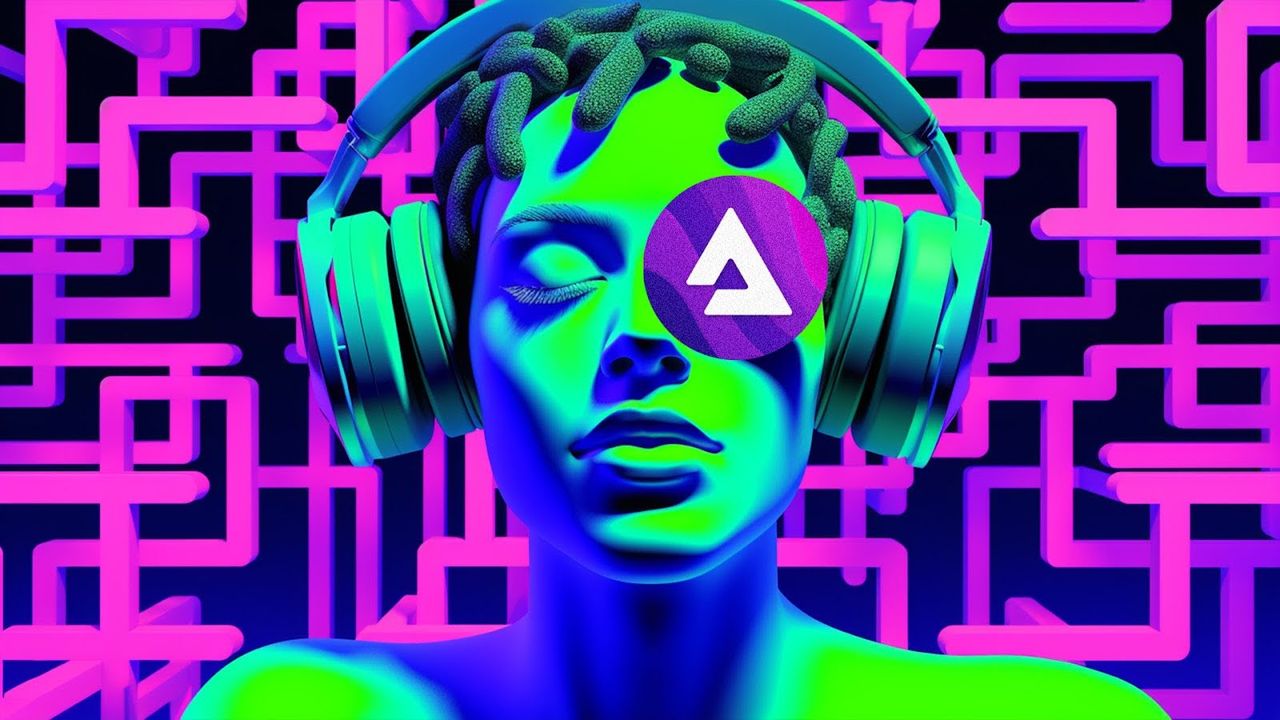
Crypto Music - Blockchain technology and cryptocurrencies have created a new way for music to be produced, distributed and consumed.
This goes beyond just financial transactions, with novel ways for artist compensation, fan engagement and rights management within music.
The music industry is shaping up for a mix of crypto and blockchain technology which will transform the way users interact with artists.
Crypto Music: Revolutionising Music Distribution and Ownership
Cryptocurrencies and blockchain technology enable artists to bypass traditional music distribution channels, record labels and streaming services often take a significant cut of revenues earned on artists' music.
Artists can sell their music directly to listeners through blockchain-based platforms, ensuring they receive a larger portion of the revenue.
Companies like Audius are pioneering this approach, offering blockchain-based solutions for an artist to monetise and distribute their work directly.
Audius was launched to remedy the inefficiencies of the music industry, which is plagued by suspicious, unfair music rights ownership and intermediaries standing between artists and their audiences.
Audius also has their own token called AUDIO, which is central to the platform.
Blockchain technologies transparent and immutable ledger allows for clear tracking of music streams and downloads, ensuring accurate and fair royalty payments.
Smart contracts allow for automatic execution of transactions, such as being able to pay royalties payments, once predetermined conditions are met, minimising delays and discrepancies within the crypto music industry.
Opulous is a company that uses blockchain technology to offer artists and rights holders a transparent view of their earnings and streamline royalty distribution.
Opulous also has its own token called OPUL, allowing users to trade MFTs, which are music NFTs. OPUL can also be staked to earn more rewards.
Empowering Artists and Fans Through Crypto Music
Artists can tokenise their music, creating digital assets that represent ownership or rights, which can be sold to fans and investors.
Similar to ICOs, ISOs or initial song offerings allow fans to invest in a song or album, providing artists with upfront funding.
The use of cryptocurrencies and blockchain technology enables innovative ways to deepen the connection between artists and fans.
For those who may remember, there used to be a music streaming service called Limewire. Limewire now has entered the crypto music space as a legitimate platform for content creators, artists and brands to create membership-based communities.
Creators have the opportunity to build recurring revenue streams by offering fans exclusive access to their community and journey.
Blockchain technology allows the creation of exclusive content and assets, ownable and tradeable for fans who can directly contribute to the success of the creators they support.
Artists issue fan tokens to offer exclusive access to content, merchandise or experiences.
Projects such as Bitsong allow artists to reward fans with cryptocurrency for playlisting their music or attending events.
Independent artists have increased access to tools and platforms so they can manage their careers independently, methods such as crowdfunding allow fans to directly support their favourite artists.
Artists can implement microtransaction models and royalties into NFTs or other unique items in order to benefit from any future sales, having this written on a smart contract makes sure that when certain criteria are met it is executed, free from tampering and manipulation.
Challenges and Considerations With Crypto Music
Despite the potential benefits blockchain technology and cryptocurrencies can bring to the music industry, there are also challenges in the widespread adoption.
The volatile nature of cryptocurrencies might deter some artists, fans or investors from fully embracing the technology.
The ever-evolving regulatory landscape around cryptocurrencies presents a challenge for their implementation into mainstream music industry practices.
There is still a long way to go in the general acceptance of cryptocurrencies, but the potential they bring is sure to outweigh the negatives.
Final Thoughts On Crypto Music
With the rise of virtual reality and NFTs, artists can sell unique virtual memorabilia or tickets to virtual concerts as collectable NFTs.
Snoop Dogg has collaborated with Sandbox, a metaverse game where he has created an NFT collection called The Doggies.
This sort of collaboration will only increase as there is more mass adoption.
The process of licensing and sampling music can become more streamlined with blockchain and cryptocurrencies, with a more transparent method and automatic royalty distribution with smart contracts.
Whilst challenges still remain, the potential in the crypto music industry is endless.
FAQ
How can crypto change the way artists interact with fans?
Companies such as Audius and Opulous revolutionise how users and artists can interact, offering new ways to create a community.
What are some challenges for the crypto music industry?
Cryptocurrencies are volatile which could increase the risk for artists and investors, and the ever-changing regulatory landscape might change how we can use and interact with cryptocurrencies.
Want More Cutting-Edge Crypto News?
Follow Us: X TikTok Instagram Telegram LinkedIn
Sign up to our newsletter at the bottom of the page
Check Out Our Top 10 Crypto Currencies of 2023
This article is intended for educational purposes and is not financial advice.


















